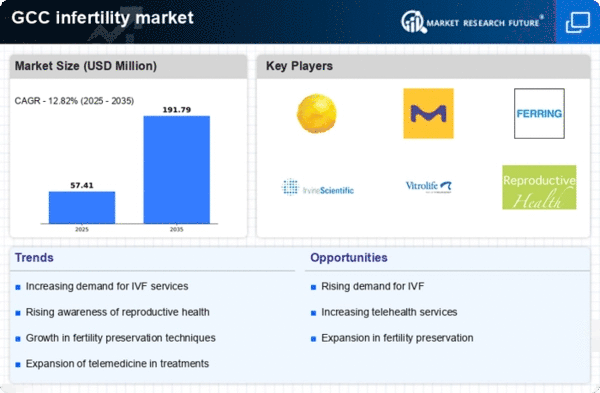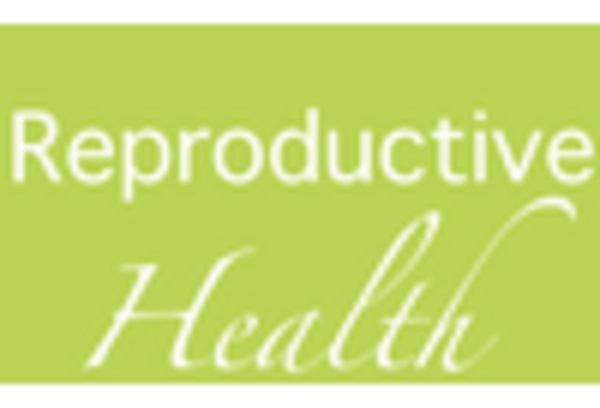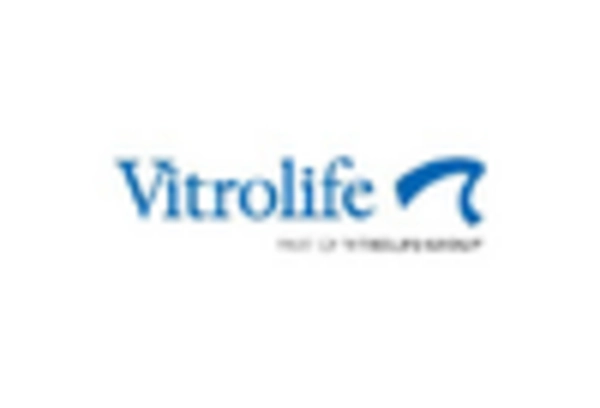Rising Infertility Rates
The infertility market in the GCC is experiencing growth due to rising infertility rates among couples. Factors such as delayed marriages, lifestyle changes, and increased stress levels contribute to this trend. According to recent statistics, infertility affects approximately 15-20% of couples in the region, prompting a greater demand for fertility treatments and services. This increase in prevalence is likely to drive investments in advanced reproductive technologies and fertility clinics, thereby expanding the infertility market. As more individuals seek assistance, healthcare providers are adapting their offerings to meet the needs of this growing demographic, which may lead to enhanced service delivery and innovative treatment options.
Cultural Shifts Towards Family Planning
Cultural shifts in the GCC are influencing attitudes towards family planning and reproductive health, thereby impacting the infertility market. As societal norms evolve, there is a growing acceptance of seeking medical help for infertility issues. This change is reflected in the increasing number of couples opting for fertility treatments, which has been reported to rise by approximately 30% in recent years. The shift towards proactive family planning is likely to drive demand for various fertility services, including in vitro fertilization (IVF) and assisted reproductive technologies. As awareness grows, healthcare providers are expected to tailor their services to meet the diverse needs of couples, further expanding the infertility market.
Government Initiatives and Support Programs
Government initiatives and support programs are emerging as key drivers of the infertility market in the GCC. Various countries in the region are implementing policies aimed at improving access to fertility treatments and supporting couples facing infertility challenges. For example, some governments are offering financial assistance or subsidies for fertility treatments, which can significantly reduce the financial burden on couples. This support is likely to encourage more individuals to seek treatment, thereby increasing the overall demand for infertility services. Additionally, public awareness campaigns are being launched to educate couples about available options, further promoting the growth of the infertility market.
Increased Investment in Healthcare Infrastructure
The GCC countries are witnessing substantial investments in healthcare infrastructure, which is positively impacting the infertility market. Governments are allocating significant budgets to enhance healthcare facilities, including specialized fertility clinics and research institutions. For instance, the healthcare expenditure in the GCC is projected to reach $100 billion by 2025, with a portion dedicated to reproductive health services. This investment is likely to improve access to advanced fertility treatments and technologies, thereby attracting more patients seeking assistance with infertility issues. Enhanced infrastructure not only facilitates better patient care but also encourages the establishment of partnerships between public and private sectors, fostering innovation in the infertility market.
Technological Innovations in Fertility Treatments
Technological innovations are playing a crucial role in shaping the infertility market in the GCC. Advances in reproductive technologies, such as preimplantation genetic testing and cryopreservation, are enhancing the success rates of fertility treatments. The introduction of these technologies has been associated with a reported increase in IVF success rates by up to 50%. As clinics adopt these cutting-edge solutions, they are likely to attract more patients seeking effective treatment options. Furthermore, the integration of telemedicine in fertility care is expanding access to consultations and follow-ups, making it easier for couples to receive support. This technological evolution is expected to drive growth in the infertility market as more individuals seek out these advanced services.
















